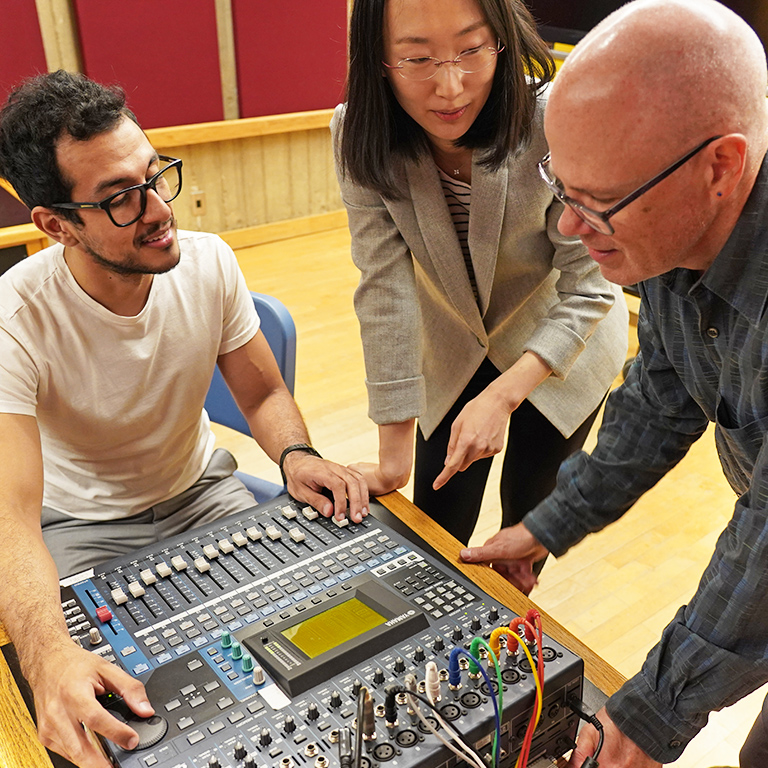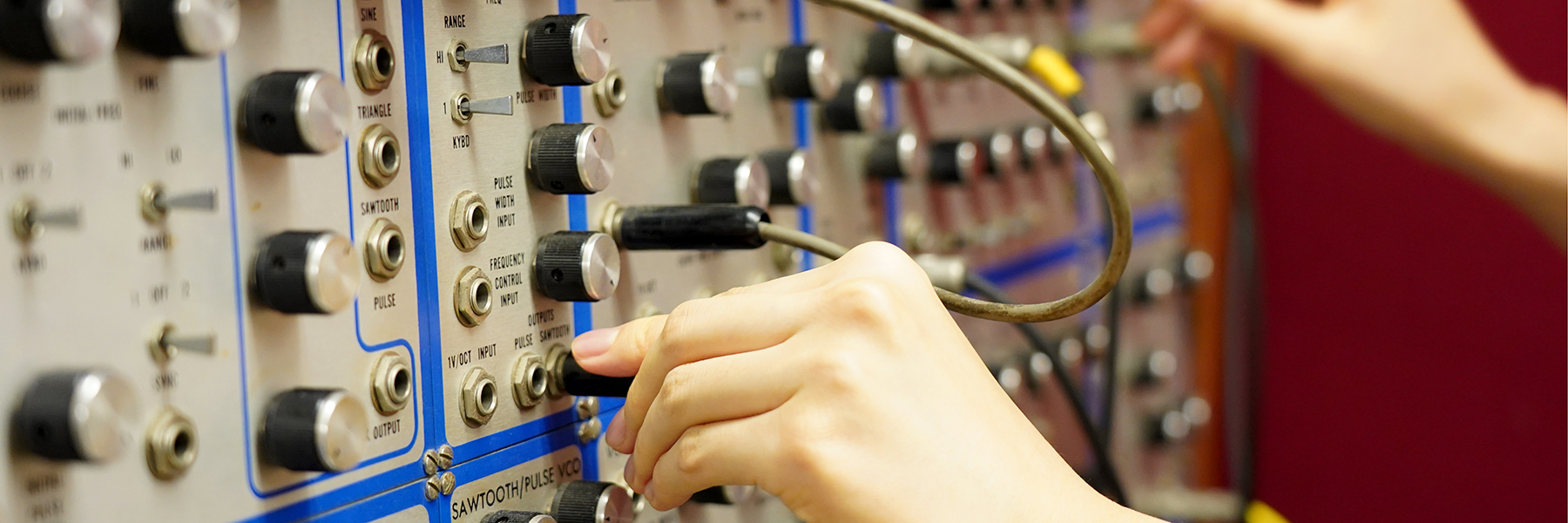Our Master of Music degree in Computer Music Composition gives you the opportunity to hone your skills and pursue new avenues for the composition and performance of electronic music. We specialize in composition for multichannel fixed media, instruments and live electronics, data-driven instruments, and audiovisual media. We encourage students to explore all of these and more, through a series of courses, intensive independent work, and multi-disciplinary collaborations. We offer frequent individual guidance, tailored to your specific background and goals.
MM in Computer Music Composition

Our master’s degree provides rigorous training in both musical and technical areas. We use familiar digital audio workstation software as well as popular computer music applications, such as Max, Kyma, RTcmix, and SuperCollider. Students create their music in the state-of-the-art Center for Electronic and Computer Music facilities and have access to campus-wide high technology, as well as the extraordinary talents of approximately 1500 music students.
You may work toward the MM:CMC degree concurrently or consecutively with the MM degree in Music Composition, sharing the same core courses.
We prefer that you have an undergraduate degree in music composition or music technology with a substantial music composition component. Other undergraduate music degrees also are welcome. Please understand that a requirement of this master’s degree is a recital of your own music that you give during your second year of enrollment. This may be difficult to accomplish for someone without prior experience in composition.
If you do not have an undergraduate degree in music, you may be admitted as a Visiting Student. Please consult with the Office of Admissions and Financial Aid to learn what this would mean. Jacobs School policy precludes admission to a graduate program without a degree in music.
You need not have much experience in computer music. Our courses give you a full introduction to a range of approaches to electronic music media.
To apply, submit a portfolio and a complete list of compositions. Please consult the pre-screen requirements to learn what to put in your portfolio and list of compositions. Also note the general application procedure on the Jacobs School Admissions and Financial Aid website, as well as the degree requirements.
The degree generally takes two years to complete. During the second year, you will present a recital of your own music (30 minutes worth), so you need to feel confident that you can produce this much music in 12-15 months. In addition to course work, you also will write a thesis (generally a composition) and pass a written exam.
Please note that our focus is on contemporary art music (often described as “new music”), rather than on EDM, pop songs, or other popular music genres. To see what we’re about, please visit the CECM Concerts page, and watch video from our concerts.
The CECM is not the place for composing film or game music. If this is your main interest, please visit our Music Scoring for Visual Media page.
We also are not teaching popular music songwriting and production with our composition and computer music majors. Although Jacobs does have an undergraduate degree in this area, there is no graduate degree program.
If you have specific questions about the degree, your qualifications, or the Center for Electronic and Computer Music in general, please contact Prof. John Gibson at johgibso@iu.edu.
Minors for Composition Majors
If you are an undergraduate composition major, you can add a minor in electronic music. Please see the details in the Jacobs School of Music Bulletin (under “Minor in Electronic Music”).
If you are a master’s composition major, you can fit electronic music into your degree as Other Required Credits. You can get a minor in electronic music if you take 12 credits (4 courses). Please see the details in the Jacobs School of Music Bulletin (under “Other Required Credits”).
If you are a doctoral composition major, you can use electronic music as one of your doctoral minors. Please see the details in the Jacobs School of Music Bulletin (under “Minor in Electronic Music”).


